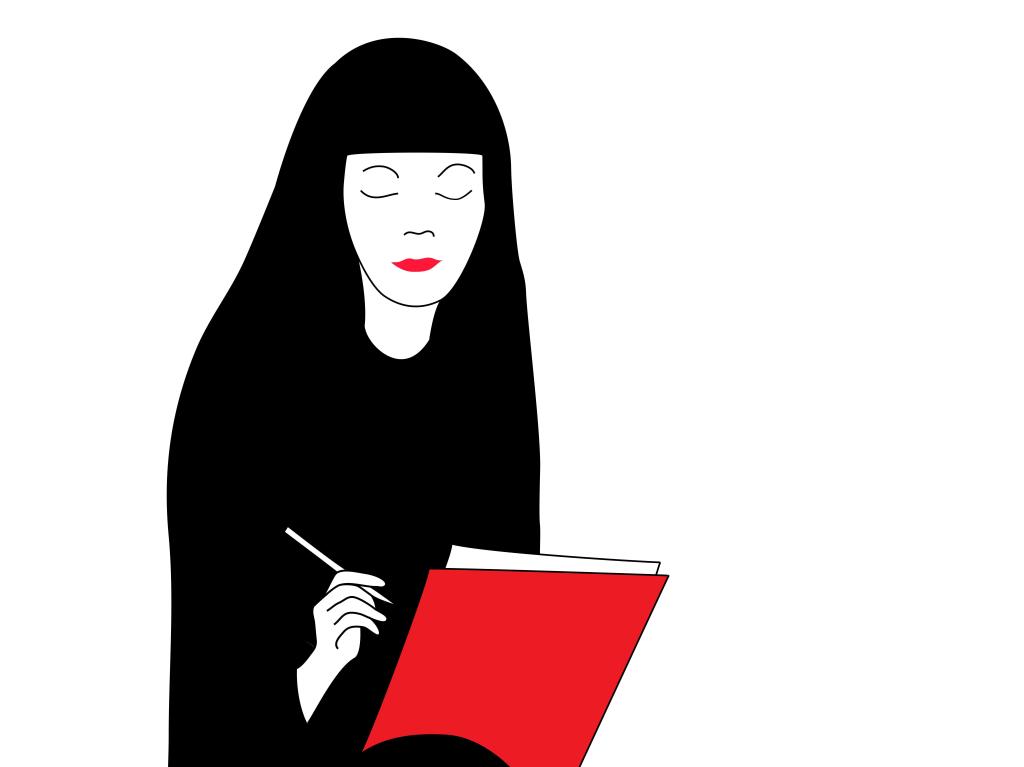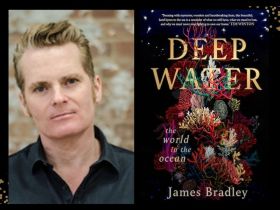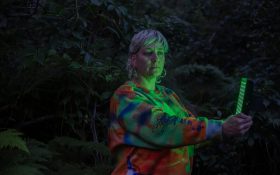Image: shutterstock.com
Defining artists and writers by their gender has often been a way of trivialising or stereotyping their work, situating it as specific to women only and not part of a wider conversation. A similar dynamic occurs when a work by a woman of colour is seen as specific to her circumstances. This is part of the same dynamic that privileges the European male voice as universal and subsumes difference as other.
As Zoya Patel, Editor of online feminist arts journal Feminartsy puts it labelling an artist by gender implies that “women writers” are only relevant to “women readers”.
Gender still matters
The paradox of claiming “woman writer” while rejecting the construct of gender is a dilemma with an inherent and on-going tension. On one hand, we can use “women writers” or “female artist” as a way to mobilise conversation about gender inequality and to collectivise around these issues, but on the other hand it is still a label that seeks to define a woman’s creative work by their gender.
But making spaces specifically for women – whether a room of one’s own, a dedicated award or a closed Facebook group, acknowledges that gender is a key part of our experience.
‘As feminism becomes more mainstream, and the power of personal stories and experiences is becoming more understood, I think identifying strongly as a “woman” in the world, regardless of your occupation, can be an important way of demonstrating how gender infiltrates into every one of our experiences. It can also be an important way of re-appropriating the same term that has been used to marginalise women, and instead own it as a source of self-worth,’ said Patel.
There is clearly nuance within claiming “woman writer” or distancing ourselves from it. As a sort of metaphorical room of one’s own, the term can create space for women’s voices to emerge and can even work against the system that devalues women’s stories. For example, The Stella Prize (Australia’s literary award for contemporary women’s writing) has successfully fostered conversation on the underrepresentation of women writer’s in awards and reviews.
‘The thing with women only prizes is they comment on how we are not operating in a meritocracy. I think if you have a woman only prize it is quite an obvious indictment on the current state of things,’ said creative writer, editor and academic Dr. Natalie Kon-yu.
‘The Stella Prize was set up in reaction to the Miles Franklin and it has certainly pointed out issues with the Miles Franklin and interestingly since Stella has started up, I think they have had mostly female winners in the Miles Franklin – in that sense it has been useful.’
Women writers and writers who are women
Gender matters more to some writers than to others.
‘I do find it frustrating when the idea of “women’s writing” is used not to describe a very particular and rich history, but simply any writing produced by a woman,’ said Melbourne-based writer and editor Jessica Friedmann.
But this doesn’t mean Friedmann rejects the term. Instead she sees it as operating within a very specific literary tradition that explores the inscription of the female body within language.
‘I feel very comfortable describing myself as a “woman writer” in that my work is in the tradition of ecriture feminine. It’s a lineage I feel very connected to.’
Mel Campbell, on the other hand, has found the gender lens perpetuates stereotypes, as when a publisher wanted her non-fiction book to be part memoir.
‘There’s a sexist assumption that from men, writing in the first person is authoritative and from women, it’s confessional,’ she said.
‘I came from a background of copywriting, in which you write from new subject positions depending on whom you’re seeking to persuade, and academic humanities writing, in which your argument rests on textual analysis, not personal anecdote. I want my writerly authority to come from these things, and the strength of my prose – not on my ability to compellingly represent my experiences as being quintessentially those of a woman.’
Misgendering in a non-binary world
Labelling writers by gender creates additional complications as many people identify outside a simple male/female divide.
‘When talking about people who identify as women or female, they’re great. But it’s when someone lumps people like me into either of those groups, it’s harmful. It feels like they’re saying “but you count as a woman/female” and it completely dismisses my own knowledge about who I am. It’s like they’re saying they know me better than I know myself,’ said author Alison Evans, who identifies as genderqueer.
‘Some people try to get around it by saying “women and non-binary people” but what they mean is “women and non-binary people who were assigned female at birth”. Which then excludes non-binary people who were assigned make at birth. And they also face discrimination because of their gender, so why are they then excluded? This just seems to perpetuate the gender binary anyway, if you exclude AMAB non-binary people.’
In a move towards more inclusivity, we could use the term female-identified rather than women artists or writers. But would this still perpetuate the stereotypes that often shape peoples assumptions about creative work by women?
‘ What I like about the term female-identified is it does point out the constructedness of gender,’ said Dr. Kon-yu.
‘I do like it but at the same time I think we expect books by women or female-identifying authors, the books themselves, to perform gender in a certain way or that people approach it through a gendered lens and I think that is a really hard thing.’
Women writers and men writers
A key advantage of gendering is allowing people to collectivise and find support in a world where male continues to be the dominant cultural paradigm.
In the 21st century, points out Dr. Kon-yu, the room of one’s own can be virtual.
‘I belong, as you probably do, to a number of secret groups on Facebook about writing that are for women or people of colour, or for feminists as well. I think the category of “woman writer” allows you to collectivise and to network within that group. I think there is collective power in it,’ said Dr. Kon-yu.
‘For me, the most important thing about saying “woman writer” is to point out what a constructed term that is and it comes back down for me to the gender heavy, or the gender laden term of the man writer.’
‘I would be such a big fan for us to start using male writer and male artist because I think it would just show even more how sexist or laden those terms “writer” and “artist” are.’
It is in the strangeness of describing someone as a “man writer” that we can recognise the masculine assumption underlying a term as seemingly mundane as “writer”. Perhaps we need to offset “woman writer” by adding “man writer” to our vocabulary too.





